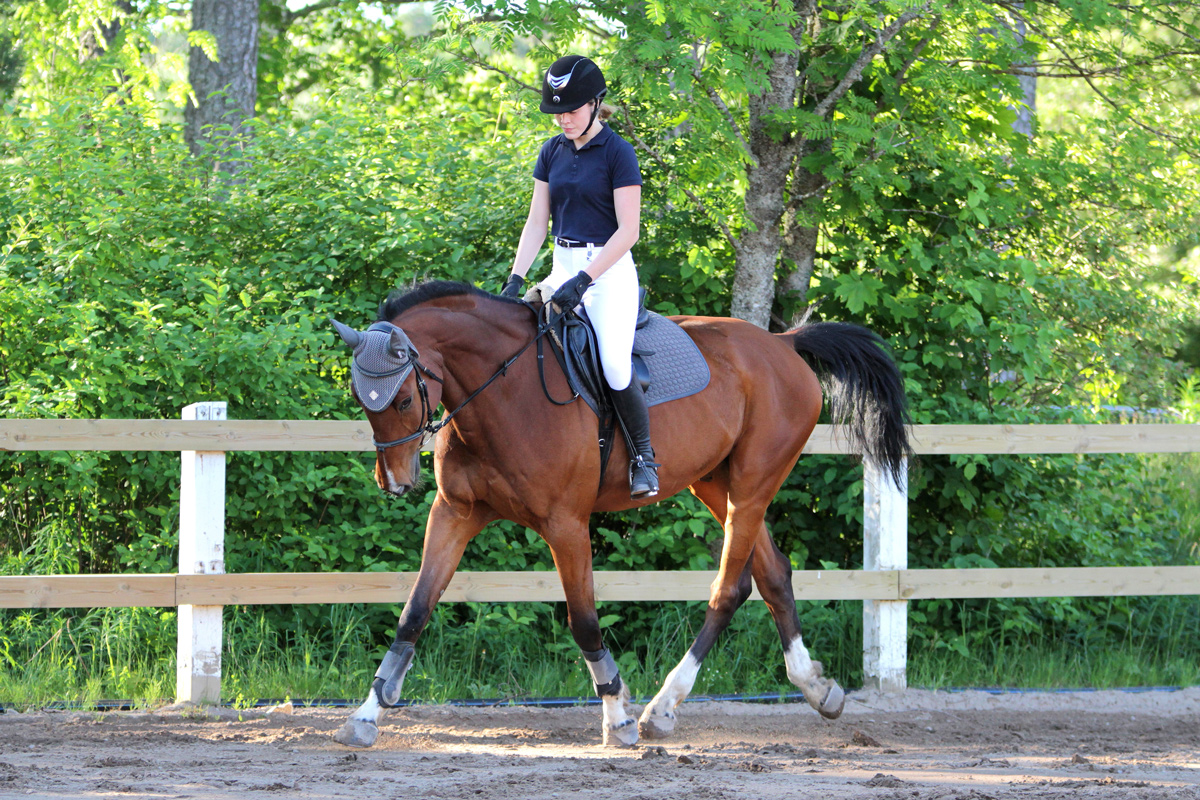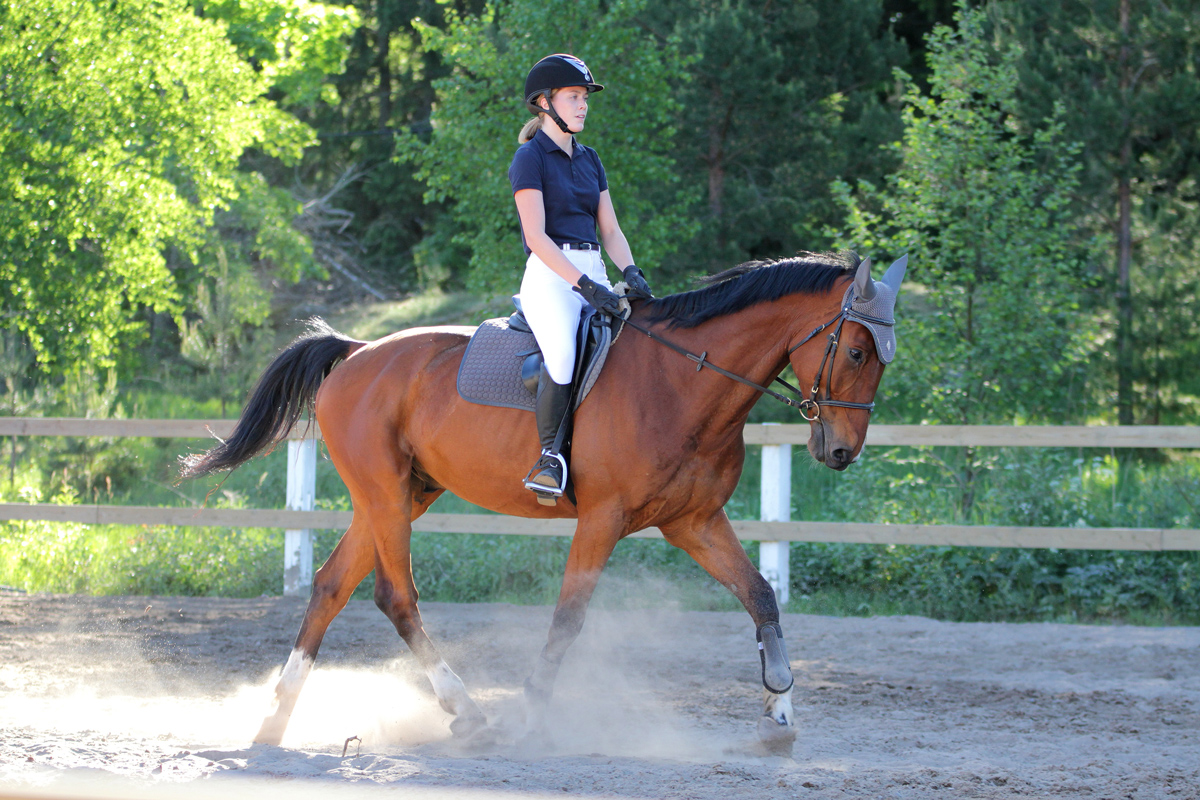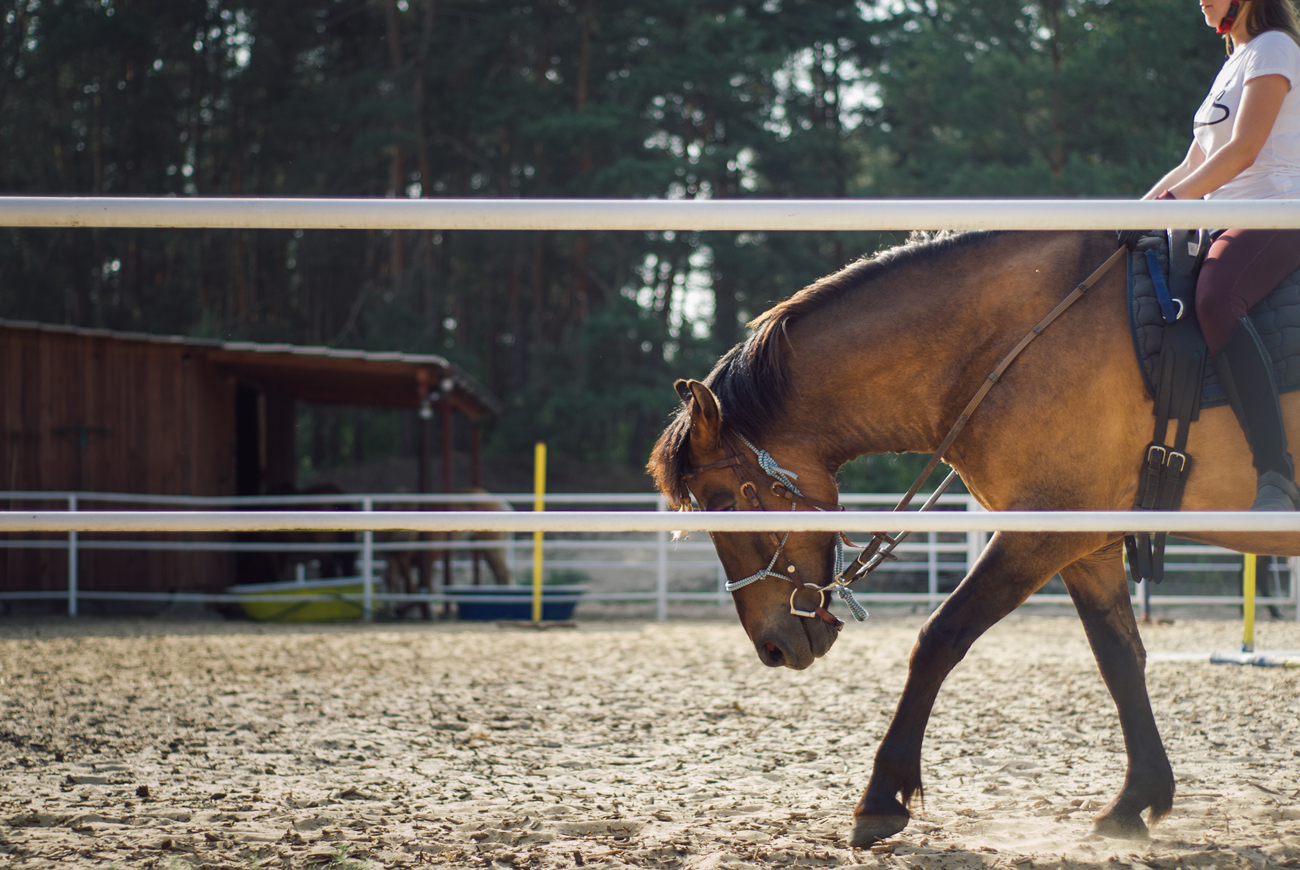It can be much harder to heal the mind than the body. If you have a horse riding accident, you may feel fearful and uncertain long after the bruises have faded. This is especially likely if you have a more serious accident, involving broken bones or severe injury.
However, with determination and time it is possible to rebuild your love of riding and return to full confidence in the saddle. What should you do to get over your fall and how can horse rider insurance help protect you in the future?
Recognise that fear is not logical
Fear of riding is an emotional problem. You can’t talk yourself back into the saddle by looking at accident statistics and persuading yourself that another fall is unlikely, or telling yourself to simply get over it.
Those nagging feelings are the primitive part of your brain trying to protect you from another accident. Despite horse riding having been a huge part of your life, after an accident you may find yourself not wanting to ever look at a horse again.
To recover, you must acknowledge the fear and take slow steps towards conquering it, just as you would train a horse to slowly get used to something they are frightened of, such as traffic.
If you try to rush it, you could make things worse; if you’re frightened, the horse may pick up on it and behave erratically and you may also be too full of adrenaline to control the horse properly.

Managing the emotional aftermath of an accident
You have a relationship of trust and respect with your horse. If your horse suddenly behaves erratically or aggressively, this can cause emotional upset for you – as if a friend had suddenly turned on you.
You need to be assertive to ride well, helping to ensure a spooked or cheeky horse keeps on the straight and narrow.
If you have a deep-seated feeling that the animal might suddenly throw you off, kick or do something else unexpected, it’s hard to regain the feeling of control.
Working with a trained counsellor to process your traumatic memory and find a way to put it behind you could be a big help.
Until you address what happened fully, your mind will keep re-playing the event over and over again and your confidence will continue to ebb away.
Make sure any physical injuries have healed fully
You need to be back to full fitness before beginning to ride again. Beside the risk of aggravating an injury, any lingering aches and pains will be more noticeable when you’re in the saddle, and it will remind you of the accident.
Check with your medical team about when they think you are physically well enough to ride again.
In the meantime, where appropriate you can maintain your fitness through other gentle activities such as walking and swimming to bridge the exercise gap until you’re ready for your next hack.
Being fit helps to prevent injury, as your body has the strength to withstand more.
Horse rider insurance comes into its own in situations like these. Your policy may provide compensation to cover costs associated with your accident, such as loss of earnings, therapy costs and other expenses such as adjustments within your home.
It also provides cover for emergency vet fees. The last thing you need after an accident is to worry about money as well as your own recovery.

Take it slowly
Take small steps back to riding. You might want to start with just spending time around your horse or sitting in the saddle before you try to do anything more advanced.
If your accident happened in a particular situation such as jumping a fence, you might want to start with easier activities such as riding on the flat to give you time to build up confidence.
It can also help to try an unfamiliar form of riding, for example in a different location or with a different type of horse. Riding with others can also give you a greater sense of comfort and reassurance.
If you’re fearful of riding, it might help to break up your path to full recovery into small, achievable goals. This will help to show you are making progress even when you’re not back to full strength and confidence yet.
For example, you could plan what you would like to be able to do in the next month, what you’re proud of having achieved, and what steps or preparation would help you to move a little further in the journey.
It’s much better to think positively in this way than to berate yourself for not making enough progress.
Don’t be ashamed to seek professional help
If riding continues to make you feel anxious, seeing a professional could help you to turn the corner.
An NLP practitioner, psychologist or counsellor will give you the space to explore and air your feelings and find ways to feel more in control.
A common technique is to use positive visualisations, imagining yourself achieving your goals and believing that you can get back your confidence.
Your subconscious mind believes what you tell it, so if you think negatively about your riding abilities, your mind will continue to be fearful.
You may also find it helpful to learn some breathing exercises that manage anxiety.
It’s important to remember that experiencing anxiety after a fall is nothing to be ashamed of – most experienced riders will have been through something similar at some point in their lives.

See it as an opportunity to become a stronger rider
It takes time to recover from an accident, but with a positive attitude and lots of patience, you should get there in the end.
In many cases, recovery from an accident will provide opportunities for you to mature and develop as a rider.
Having to start from scratch in communicating with your horse and building your skills back up again can make you a better rider, with a healthy awareness of risk.
Do you need horse rider insurance you can trust? Here at Equesure, we have over 60 years of experience in the insurance market and can organise cover for anyone who rides, whether they own their own horse or not.
Benefits of horse rider insurance through Equesure include:
- Public liability cover up to £1 million
- Personal dental cover up to £1,750
- Death of horse cover
Contact our friendly team today for a quote.
Policy benefits, features and discounts offered may very between insurance schemes or cover selected and are subject to underwriting criteria. Information contained within this article is accurate at the time of publishing but may be subject to change.






